
How ex-smokers can get a yearly lung cancer screening
St. Joseph's/Candler offers lung cancer screening CT scans at four locations around the region
If you’re a current smoker or a former heavy smoker, there may be a nagging question in your mind. Could I have lung cancer?
Understandably, you may not want to know the answer.
“As easy as it is now for many people to get screened, there is still a resistance and a bit of a stigma,” says Benae Thompson, Clinical Practice Manager at St. Joseph’s/Candler’s Advanced Thoracic Oncology Center. “People are afraid of what might be found. They might be hard on themselves for not breaking the habit sooner. But we try to remind people that you’re not alone. Our region has a lot of smokers or former smokers.”
The best way for physicians to detect lung cancer in earlier stages is through an advanced, low-dose CT scan. That’s why St. Joseph’s/Candler makes this process as easy and convenient as possible, with four locations in Savannah, Pooler and Bluffton.
Continue reading belowWhat happens at a lung cancer screening?
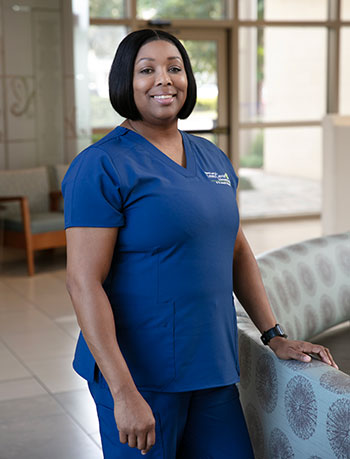
For eligible patients, a lung cancer screening is recommended yearly. There is no prep or anesthesia involved—basically, a patient receives a CT scan. The screening uses low-dose radiation, so there is no contrast dye or IV line. It is a painless procedure in which the patient lies on a table that slides into a circular scanner, which then takes multiple images of your lungs from various angles.
Who should get screened?
Annual lung cancer screenings are recommended for individuals who meet the following criteria:
- Age: 50 to 80 years old
- Smoking history: At least a 20 pack/year smoking history (for example, 1 pack/day for 20 years)
- Smoking status: Current smoker or having quit within the past 15 years
- Family history: A first-degree relative diagnosed with lung cancer
- Environmental exposure: Contact with radon or cancer-causing agents like asbestos, diesel fumes, and coal smoke
“Don’t hesitate to talk with your doctor if you fit any of these criteria,” Thompson says. “And please don’t be embarrassed about your smoking history. Our only focus is on catching lung cancer early, because early detection saves lives.”
To learn more about screening eligibility, call 912-819-5169.
Why it matters
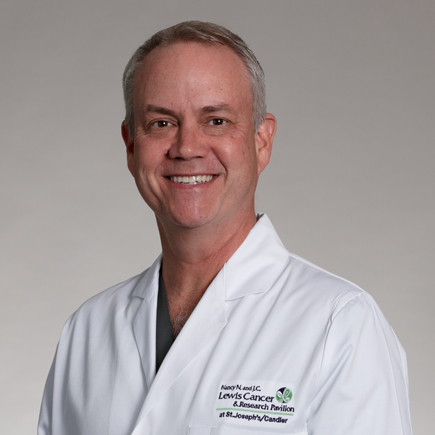 Physicians at the Advanced Thoracic Oncology Center see the impact of lung cancer screening every day.
Physicians at the Advanced Thoracic Oncology Center see the impact of lung cancer screening every day.
“Finding lung cancer early is a huge factor in long-term survival rates and for a better quality of life,” says Marc Bailey, MD, FACS, of St. Joseph’s/Candler Physician Network – Cardiothoracic Surgery. “That’s why the lung cancer screening program is so important. Surgery is often most effective when tumors are found early.”
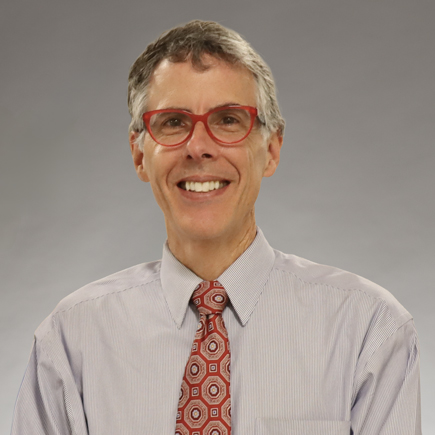
M. Douglas Mullins, MD, pulmonologist with Southeast Lung Associates and medical director of the Advanced Thoracic Oncology Center, agrees wholeheartedly.
“We strongly encourage screening,” Dr. Mullins says. “If you are a current smoker—or even if you are a former smoker who feels fairly healthy—it’s a good idea to talk to your doctor about whether you are a good candidate for the program.”
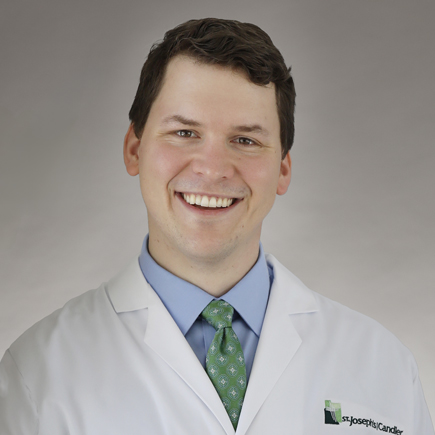
Local doctors from every corner of this region have been grateful for the chance to educate their patients about lung cancer screening.
“The lung cancer screening program has been a tremendous resource for patients in our community,” says Andrew S. Mrugala, MD, of St. Joseph’s/Candler Primary Care in Pooler. “We are now able to follow lung abnormalities over time to ensure that a patient is connected with a relevant specialist as soon as a problem is suspected. In my practice alone, I’ve had over a dozen patients who have successfully been diagnosed and treated for lung cancer with years of disease-free remission, something which previously was inconceivable.”
Russell W. Lake, MD, of St. Joseph’s/Candler Primary Care in Richmond Hill, hopes to educate the patient population in Bryan County about all of the screening options available to them.

“Most patients are aware of screening for breast and colon cancers, but many are often unaware of the need for or opportunity to screen for lung cancer,” Dr. Lake says. “I ensure my qualifying patients understand the importance of screening for a condition like lung cancer before they have symptoms, the ability to have the testing done at any of our imaging facilities, and that it takes very little time to do the actual test.”
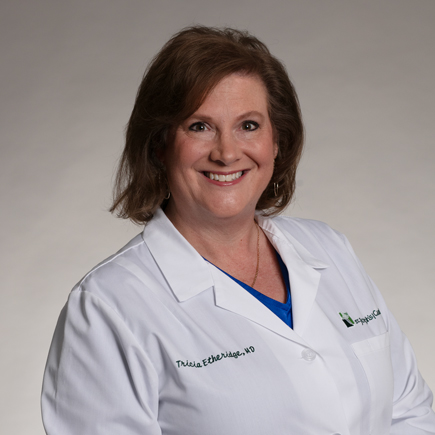
Patients in coastal South Carolina have the option of getting a lung cancer screening in Bluffton, which is a huge advantage for eligible patients in that area.
“Having a local lung cancer screening program is a critical resource,” says Tricia L. Etheridge, MD, of St. Joseph’s/Candler Primary Care in Ridgeland, South Carolina. “This means patients who live here don’t have to travel far to receive what could be a life-saving screening.”
Smart Health, Smart Living - The Latest Delivered to You
Want more health stories on topics that impact the health and wellbeing of you and your family? Learn about new technology, treatment options and how you can live a smarter, healthier life in our Smart Living publication.

